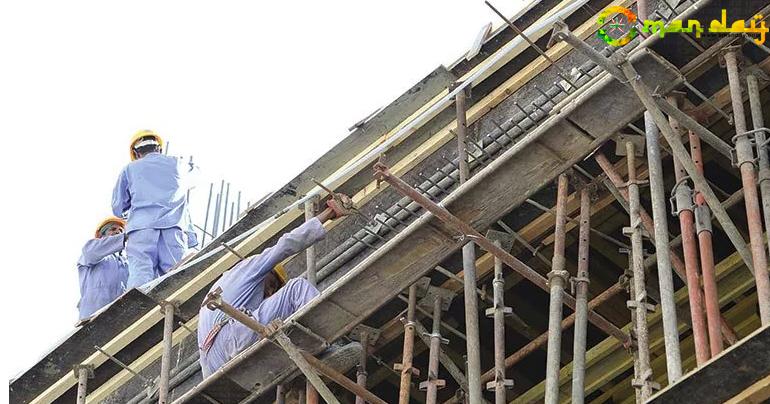Construction workers in Oman still at risk despite reforms
They work 12 hours a day and seven days a week in hazardous conditions, but companies hold back their wages for as long as half an year. That’s inhuman, but a new classification system could offer them relief, write Alvin Thomas and Hasan al Lawati
When you think of the Sultanate, the sights that come to mind are those of beautiful mountains peaking over the horizon, walking past the vapours of oud in the historic Muttrah souk, taking a stroll on the beach with your loved ones or going wadi bashing with your mates on a break. It’s all very appealing; cinematic, even.
But gloss over the obvious and into the other side of things, and you’ll find yourself staring into the lives of many individuals whose stories are often untold and, unsurprisingly, are nothing short of heartbreaking.
Such is the case of Dineshan* (name changed to protect identity) who we caught staring through the windows of one of the leading gyms in the Muscat region in awe during the wee hours of a Saturday.
“It’s funny to see that people are here to lose weight and build muscle. We do that on a daily basis: we lift weights to build houses,” he laughs in Malayalam when we catch hold of him for a quick chat.

Dineshan, a labourer with a local construction company here, came to Oman in 2012 with the hope of turning around his family’s fortunes. After falling into debt in 2010, the young Indian hailing from Kerala was forced to quit his job as a carpenter and move to the Sultanate.
Hired by a local agent after he paid them Rs80,000 (RO474) as a labourer, the then 25-year-old flew into Oman with the dream of ‘saving
his family’.
“The grass is always greener on the other side,” he chants, before adding, “I was able to clear off our debt in about two years after coming here.”
“I sent every Riyal I got, save for RO10 per month, from my salary of RO135. I wouldn’t even buy a shawarma or Pepsi when I was hungry. Instead, I would cook the food with about 12 others. This only cost me about RO3 per month.
“I also haven’t bought anything for myself in the last eight years. Everything is for my parents, wife and son. This is what motivates me to work hard and earn the money, but at the expense of seeing them.”
Dineshan doesn’t own a smartphone. Instead, he relies on his friends when he has to call his family back home.
Passport confiscated
After a five-minute conversation, however, Dineshan cries: “I would like to go back home. It doesn’t have to be forever. I haven’t gone home since 2014. I miss Sanju (his wife).
Dineshan – whose voice is barely clear now – then reveals that his passport has been confiscated by his public relations officer and his leave requests have been rejected.
“In my contract, I can leave for a 30-day break after two years of service, but that is not the case in the company. All engineers and others can take leave, but why can’t we?” he asks, as we console him.
We then ask him if his company has paid him his dues, to which he exclaims: “No.”
“Five months’ salary is pending since 2015. But that’s the case with everyone. We first headed to the management after two months of not getting the salary, who told us that even they hadn’t received their salaries as our clients hadn’t paid the company.
“We waited for another three months before we started getting paid. But we’re yet to receive five months’ payment,” he adds, before walking away
in despair.
While Dineshan – and 70 of his fellow colleagues – remain silent about their ordeals, it begs us to ask how the non-payment of salaries has affected the lives of their families who depend on these poor workers.
This motivated us to dig deeper into the lives of these expatriate labourers who bear the brunt of the struggle in order to keep the progress ticking.

...[ Continue to next page ]
Share This Post






